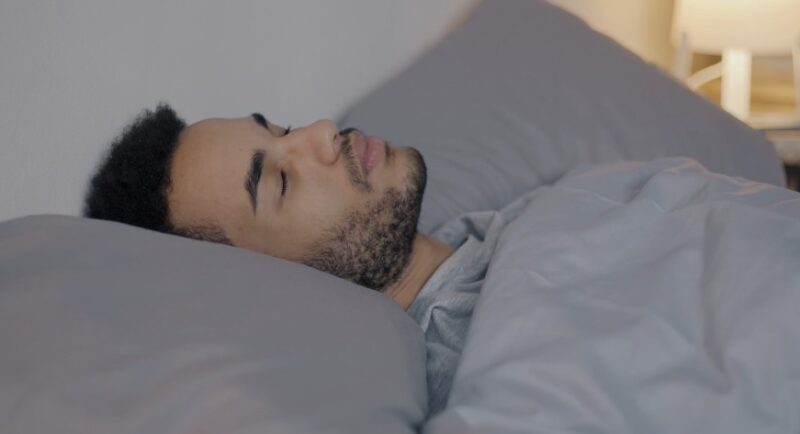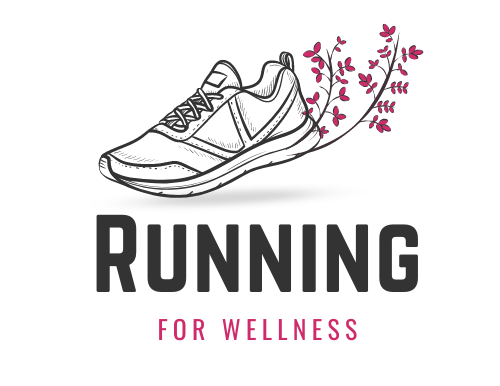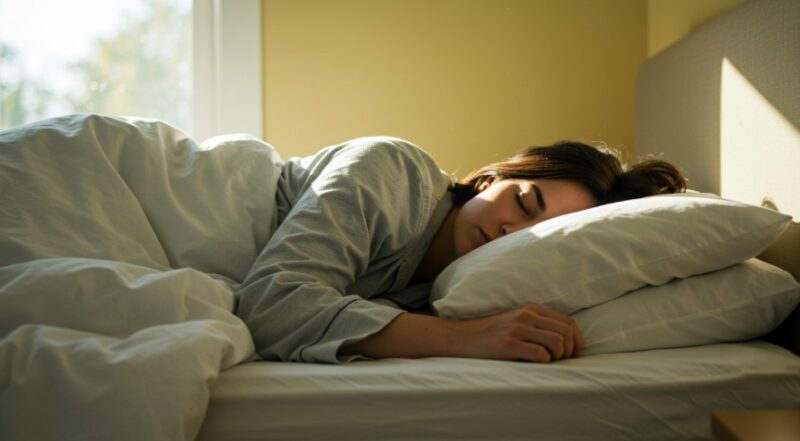Sleep doesn’t just recharge your batteries; it literally rewires your brain, heals your body, and keeps your health on track in more ways than most people realize. Yet it’s still one of the first things many cut when life gets busy.
We stay up to finish work, binge another episode, scroll ourselves into a trance, and then wonder why we feel foggy, short-tempered, or physically drained the next day.
The truth is, quality sleep isn’t optional. It’s a biological necessity, just like food or movement. And if you want to protect your mind, body, and long-term well-being, it’s worth treating sleep like the health priority it is.
Table of Contents
ToggleKey Highlights
- Sleep repairs both brain and body, boosting mood, memory, and physical recovery.
- Poor sleep increases the risk of depression, anxiety, heart disease, and weight gain.
- Good sleep hygiene (schedule, routine, screen limits) makes a real difference.
- CBTi and medical help can treat chronic sleep issues like insomnia or sleep apnea.
Sleep Is Recovery

While you’re sleeping, your body is in full repair mode. It’s rebuilding muscles, regulating hormones, organizing memories, and literally washing waste products from your brain using something called the glymphatic system. That’s not fluff. That’s science.
The National Sleep Foundation recommends that adults get at least 7 hours of sleep each night. Not six. Not “catching up on the weekend.” Seven, consistently. But millions fall short of that mark, often without realizing the ripple effects it creates across every system in the body.
Let’s break it down a bit.
The Mental Health Payoff of Good Sleep

There’s a strong link between sleep and mental health, and it’s not just anecdotal. Research backs it up in a big way.
A Sleep Medicine Reviews meta-analysis of 65 clinical trials and 8,608 participants found that improving sleep quality produced measurable benefits across a range of mental health conditions. We’re talking:
| Mental Health Outcome | Effect Size (g+) | Confidence Interval (95%) | P-Value |
| Depression | -0.63 | -0.84 to -0.43 | <0.001 |
| Anxiety | -0.51 | -0.77 to -0.24 | <0.001 |
| Stress | -0.42 | -0.79 to -0.05 | 0.033 |
| Rumination (looping thoughts) | -0.49 | -0.93 to -0.04 | 0.041 |
| Positive psychosis symptoms | -0.26 | -0.43 to -0.08 | 0.014 |
Even small improvements in sleep were linked to noticeable changes in mood and mental clarity. The dose-response relationship (B = 0.77, CI = 0.52–1.02) means the better your sleep gets, the stronger those mental health improvements become.
What’s powerful here is that the benefit wasn’t limited to people already diagnosed with conditions like depression or anxiety.
People without clinical diagnoses also saw real improvements in mood and resilience. In other words, better sleep supports emotional stability across the board.
How Poor Sleep Feeds Mental Struggles
When sleep is disrupted, the consequences show up fast: irritability, poor concentration, emotional reactivity, and that sense of feeling “off” for no clear reason.
The Mental Health Foundation’s report Sleep Matters points out that insomnia can affect relationships, productivity, and decision-making, and that nearly 1 in 3 people struggle with some form of it.
If someone already lives with anxiety, depression, or another condition, poor sleep often magnifies it. And the cycle can get tough to break: anxiety causes poor sleep, and poor sleep worsens anxiety.
The same goes for depression. That’s why improving sleep habits isn’t just “self-care,” for many, it’s a critical part of mental health management.
The Physical Impact of Sleep

If your mental health feels shaky on bad sleep, your physical health is no less vulnerable.
Let’s start with appetite. Ever noticed how much hungrier you feel after a short night of sleep? That’s hormonal. Sleep regulates ghrelin and leptin, which control hunger and fullness.
Less sleep means more ghrelin (hunger) and less leptin (satiety), so you’re biologically primed to snack more and crave high-calorie foods.
But the effects go beyond just a rumbling stomach:
What Sleep Does for the Body
- Muscle Repair: During deep sleep (particularly slow-wave sleep), the body rebuilds muscles and tissues. Skimping on sleep slows this repair process.
- Cardiovascular Health: Short or disrupted sleep can raise blood pressure and increase inflammation—both major risk factors for heart disease.
- Glucose Control: Poor sleep impairs insulin sensitivity, making it harder for the body to regulate blood sugar. Long-term, that raises the risk of Type 2 diabetes.
- Immune Function: Your immune system performs better when you’re well-rested. People who sleep less than 7 hours are more likely to catch colds and other infections.
- Cancer Risk: Some research suggests a link between poor sleep and higher rates of cancer, particularly in those working night shifts or with disrupted circadian rhythms.
And perhaps most immediately noticeable:
- Accidents and Injuries: Fatigue slows reaction time, impairs judgment, and increases the risk of accidents at work or on the road. Drowsy driving has been shown to be as dangerous as drunk driving.
When Health Problems Disrupt Sleep and Vice Versa

Sleep health doesn’t exist in a vacuum. It’s connected to other health challenges, and those connections often go both ways.
For example:
Physical Issues That Worsen Sleep
- Obstructive Sleep Apnea (OSA): Common in both psychiatric and overweight populations, OSA causes repeated breathing pauses during sleep. It not only leads to severe daytime fatigue but increases the risk of stroke, high blood pressure, and even sudden cardiac events.
- Hormonal Changes: Menstrual cycles, pregnancy, and menopause often come with sleep disturbances. Night sweats, restless legs, and shifting hormone levels all play a role.
Mental Health Issues That Disturb Sleep
- Anxiety: Racing thoughts and physiological arousal make it harder to fall or stay asleep.
- Depression: May lead to insomnia—or its opposite, hypersomnia, where someone sleeps excessively but still wakes up tired.
Breaking these feedback loops requires treating both the sleep problems and the underlying conditions, often at the same time.
Practical Ways to Improve Sleep Quality
So, what can actually help? A lot, it turns out—but consistency matters. Here are the foundations, straight from experts like the Sleep Foundation and clinical research:
Core Sleep Hygiene Habits
- Stick to a Sleep Schedule: Go to bed and wake up at the same time every day—even weekends. Your internal clock likes rhythm.
- Create a Wind-Down Routine: Light reading, a warm bath, or breathing exercises signal to your brain that it’s time to chill. Tools like a free AI chat bot can help create a calming bedtime routine, especially for those who struggle to mentally unwind at night.
- Cut the Screens: Phones, tablets, and TVs emit blue light that suppresses melatonin. Shut them down 30–60 minutes before bed.
- Keep the Room Cool and Dark: Ideal sleep temperature is between 60–67°F (15–19°C). Use blackout curtains or a sleep mask if needed.
- Watch Caffeine and Alcohol: Both interfere with deep sleep, especially when consumed in the evening.
Exercise Helps, but Time It Right
Regular physical activity is linked to deeper, more restful sleep. Just don’t schedule intense workouts too close to bedtime, give yourself at least 2–3 hours to cool down.
Cognitive Behavioral Therapy for Insomnia (CBTi)
For people who’ve tried all the tips and still can’t sleep, CBTi is one of the most effective, evidence-based solutions. It works by addressing the thought patterns and behaviors that fuel insomnia.
Digital versions, like the Sleepio program, have made CBTi more accessible and cost-effective. CBTi doesn’t rely on medication and can produce lasting improvements.
Sleep Aids: Use with Caution
Over-the-counter sleep aids or melatonin supplements can be helpful short-term but aren’t long-term solutions. They mask symptoms rather than solving the root issue, and in some cases, can actually worsen sleep cycles when used improperly.
When to Seek Professional Help
If you’re dealing with persistent insomnia, loud snoring with choking sounds, or daytime sleepiness that doesn’t improve with lifestyle changes, it might be time to talk to a doctor or sleep specialist.
Conditions like sleep apnea often go undiagnosed but respond well to treatments like CPAP (Continuous Positive Airway Pressure). Addressing them not only improves sleep, it lowers long-term health risks dramatically.
Why Prioritizing Sleep Is a Smart Health Move
People talk a lot about investing in their health—clean eating, gym memberships, mental wellness apps. All great. But sleep often gets left out of the conversation, even though it might be the most cost-effective investment you can make.
The research is clear: better sleep isn’t just about feeling less groggy. It protects your heart, balances your mood, regulates your weight, and boosts your immune system. And the benefits compound over time.
Final Thoughts
Sleep isn’t a luxury. It’s a pillar of health. When you treat it like a non-negotiable part of your day, just like meals or movement, your brain and body respond in kind.
If you’ve been treating sleep like an afterthought, now’s a good time to rethink it. Start with small shifts. Stick to a bedtime. Cut screen time earlier. Pay attention to how you feel after seven solid hours—and how much clearer your thoughts and more resilient your mood become.
Health starts with recovery. And recovery starts with sleep.
Related Posts:
- How Long Does It Take to Train for a Half Marathon?
- Top 400 Hilarious Gym Quotes to Keep You Motivated
- How Far Is a Half Marathon? Everything You Need to Know
- How Can You Start a Career as a Running Coach?
- Half Marathon Training Plan for Beginners - Simple…
- 6 Best Running Playlists Music for Every Pace and Mood







